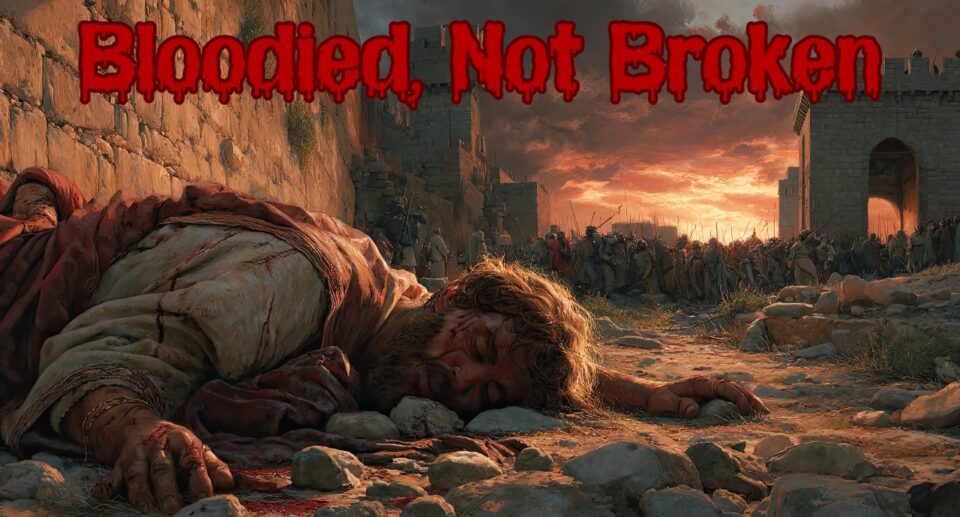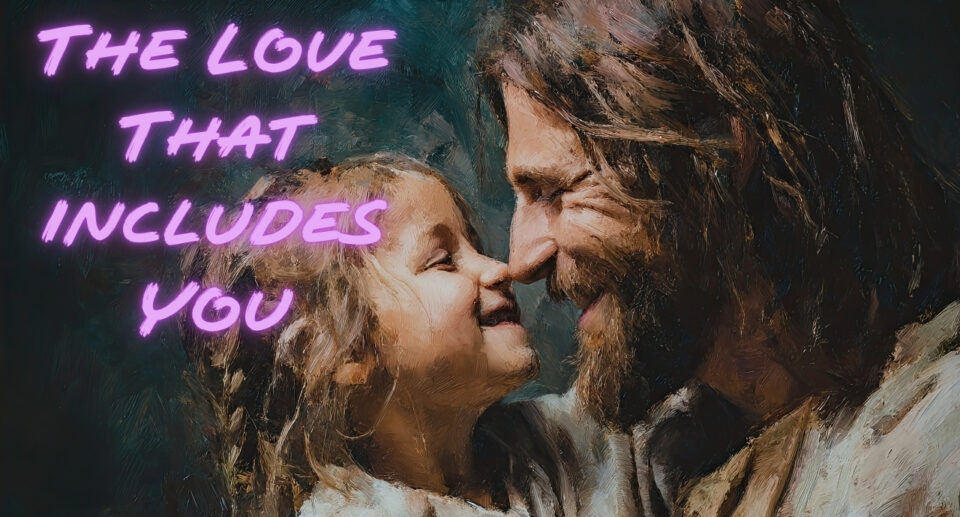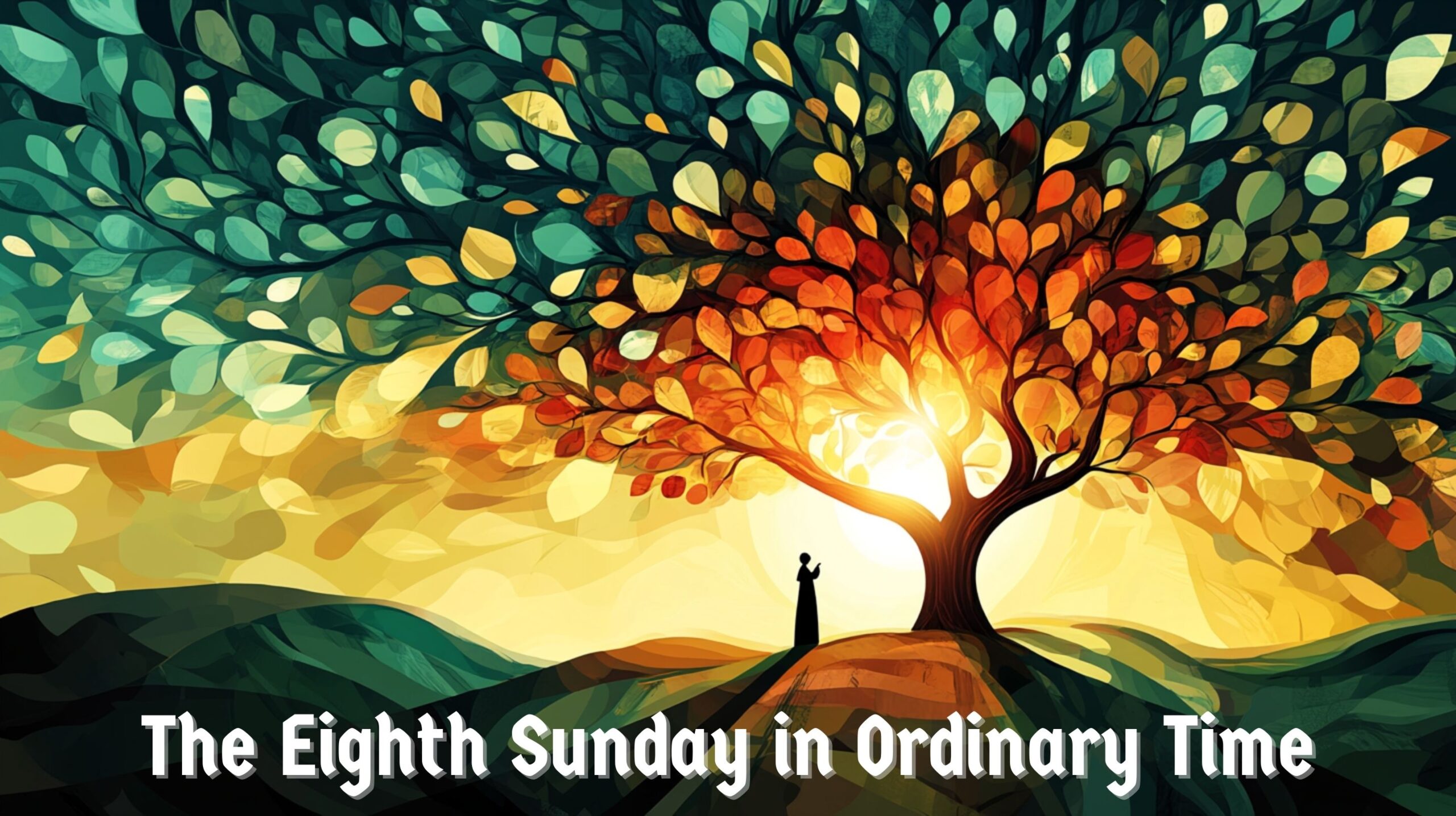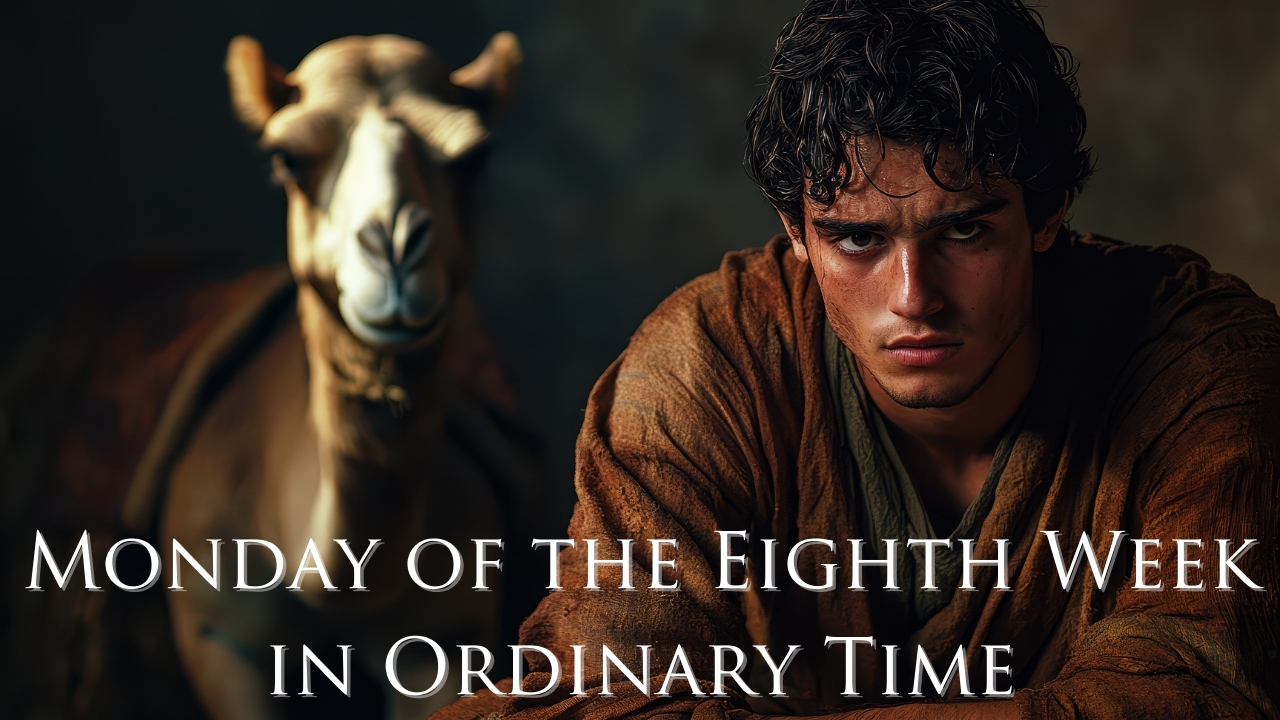The Battle for Belonging: Who Gets to Decide You’re In? | Daily Readings | May 21, 2025
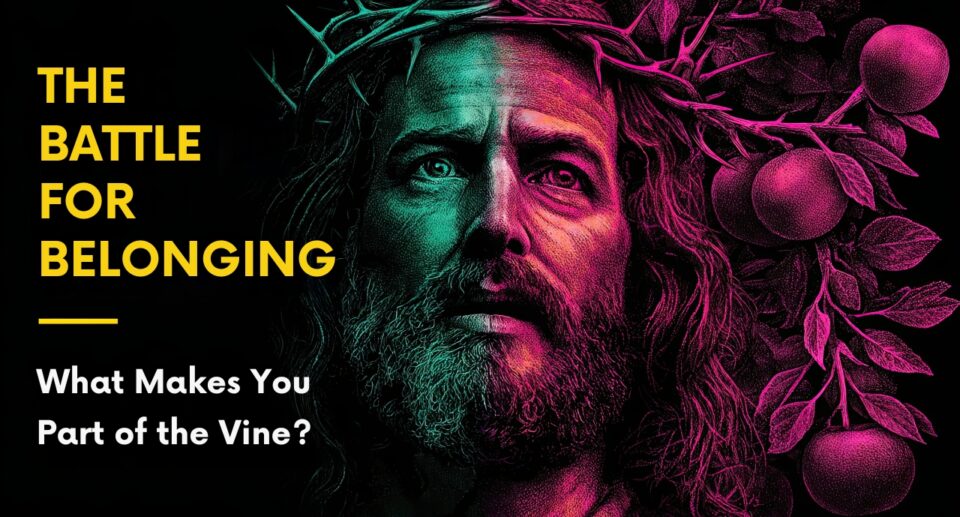
May 21, 2025 – Daily Catholic Lectionary Readings for Wednesday of the Fifth Week of Easter.
“Unless you are circumcised, you cannot be saved.” With these words, the early church faced its first major identity crisis. What truly makes someone part of God’s family? Physical markings? Cultural practices? Or something else entirely? The battle that erupted in Antioch and Jerusalem continues today – we’ve just changed the boundary markers. Jesus cuts through the debate with a revolutionary image: “I am the vine, you are the branches.” Connection to him, not conformity to human standards, determines true belonging.
This cinematic reflection explores:
- How the circumcision controversy nearly fractured Christianity at its birth
- Why religious people keep creating new requirements beyond faith in Christ
- What happens when we confuse cultural expressions with spiritual essentials
- How Jesus’ vine metaphor revolutionizes our understanding of belonging
Readings: Acts 15:1-6; Psalm 122:1-2, 3-4ab, 4cd-5; John 15:1-8
Perfect for anyone questioning where they fit in God’s family, struggling with religious gatekeeping, or seeking to understand what truly constitutes Christian identity beyond cultural markers.
#TrueBelonging #JesusTheVine #BeyondReligiousGatekeeping #WednesdayReflection #FifthWeekEaster
The Battle for Belonging: What Makes You Part of the Vine
“Unless you are circumcised according to the custom of Moses, you cannot be saved.”
With these words, a theological bomb detonated in the early church.
Imagine the scene: Gentile believers in Antioch who’d experienced radical transformation—their lives upended by encounter with Jesus—suddenly told their conversion wasn’t enough. Something was missing. Their bodies needed modification to truly belong.
This wasn’t some minor theological squabble about candles or worship styles. This was existential. This was about who’s in and who’s out. About whether God’s family needed two separate dining rooms—one for the properly-marked insiders and another for the insufficiently-scarred outsiders.
Paul and Barnabas erupted. The text says “no small dissension and debate” broke out. Translation: holy hell broke loose.
What makes someone truly part of God’s people? Is it physical alteration? Ethnic heritage? Cultural practices? Or something else entirely?
The battle still rages today. We’ve just changed the boundary markers.
Some insist you’re not really saved without the right political positions. Others demand specific worship styles as proof of authentic faith. Some measure belonging by emotional experiences, others by theological precision, still others by moral performance.
The circumcision party had Scripture on their side. They could quote chapter and verse from Genesis, Leviticus, and beyond. Their position wasn’t some fringe cult idea—it was embedded in thousands of years of religious practice. God himself instituted circumcision as the covenant sign. How dare anyone suggest it was optional?
That’s what makes this moment in Acts so revolutionary. The apostles dared to ask whether a divine command for one chapter of salvation history should continue into the next. They risked being called heretics, compromisers, or worse.
At stake was nothing less than the fundamental nature of belonging to God.
Enter Jesus with a completely different framework: “I am the vine, you are the branches.”
Notice what’s missing from Jesus’ belonging metaphor. No mention of circumcision. No racial prerequisites. No cultural hoops. No political litmus tests.
Just one question: Are you connected to the vine?
Jesus ruthlessly simplifies what it means to belong: “Abide in me, and I in you.” Connection to him is everything. Without it, even the most impressive religious credentials shrivel into dead branches fit only for burning.
With it, even those considered outsiders by religious gatekeepers produce fruit that transforms landscapes.
This vine imagery subverts every human attempt to control God’s family boundaries. Branches don’t get to decide which other branches belong to the vine. Their only job is to stay connected and bear fruit.
The vinedresser alone decides which branches remain. And his criteria isn’t tribal markers, theological precision, or cultural conformity—it’s fruitfulness.
“By this my Father is glorified, that you bear much fruit and so prove to be my disciples.”
Fruit—not foreskins—proves discipleship.
This flips the entire circumcision debate on its head. The Judaizers were asking, “How can uncircumcised Gentiles possibly belong to God’s covenant?” Jesus responds, “Don’t mistake the external sign for the internal reality. The sign of true belonging isn’t alteration of flesh but production of fruit.”
Yet Jesus doesn’t promote cheap belonging either. His vision isn’t “believe whatever, do whatever, just claim connection to me.” The vine metaphor is brutally honest about the cost of disconnection:
“If anyone does not abide in me he is thrown away like a branch and withers; and the branches are gathered, thrown into the fire, and burned.”
Remaining connected requires continual surrender. Dead branches don’t get sentimental funerals—they get removed for the health of the vine.
This clarifies what the Jerusalem council was really deciding: not whether standards should exist, but which standards actually matter. Not whether belonging has boundaries, but which boundaries reflect God’s heart rather than human control.
The psalm captures this tension perfectly. Jerusalem was a place of pilgrimage where “the tribes go up.” There was joy in this shared journey to a common center: “I rejoiced when they said to me, ‘Let us go to the house of the LORD!'”
But notice what created this unity—not uniform appearance but unified direction. Not identical backgrounds but identical destination. Not matching customs but matching commitment.
The tribes remained distinct. They didn’t surrender their unique identities to belong. What united them was their common pilgrimage toward the same holy center.
This is precisely what the apostles had to decide in Jerusalem. Would God’s family be defined by cultural uniformity or by common direction toward Christ?
Their decision would determine whether Christianity would remain a Jewish sect or become a global movement. Whether it would be confined by cultural walls or unleashed across every human boundary.
The same question confronts us today. Will we insist that true Christians must look, vote, worship, and speak like us? Or will we recognize the breathtaking diversity of branches that can thrive on the same vine?
Make no mistake—this isn’t about abandoning truth for inclusion. It’s about distinguishing between essential connection to Christ and non-essential cultural expressions of that connection.
The circumcision party wasn’t wrong to value covenant faithfulness. They were wrong to insist that faithfulness must look identical across all cultures and contexts.
True unity has never meant uniformity. The psalm envisions Jerusalem with twelve distinct tribes converging—not twelve identical replicas. What makes them one people isn’t identical practices but identical passion.
When Jesus says “I am the vine,” he offers the only center that can truly hold humanity together without crushing our God-given diversity. Connection to him transcends the boundaries we create to separate insider from outsider, accepted from rejected, us from them.
Every generation faces its own circumcision controversy—its own battle over what truly constitutes belonging. Will we follow the fearful path of adding requirements beyond connection to Christ? Or will we trust that the vinedresser knows better than we do which branches belong and which don’t?
Perhaps the most shocking part of the vine metaphor is this: branches don’t get pruning shears. We don’t decide which branches stay or go. Our job isn’t gatekeeping the vine but bearing fruit from our connection to it.
The Jerusalem council understood this. Rather than positioning themselves as the ultimate arbiters of belonging, they sought to discern what the Spirit was already doing among the Gentiles. They asked not “How can we keep control?” but “What is God making possible?”
The battle for belonging continues. But Jesus has already settled the decisive question. What makes you part of the vine isn’t the approval of other branches. It’s connection to him that produces fruit others can taste and see.

